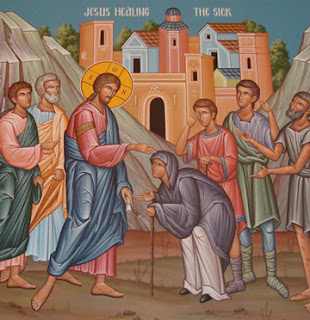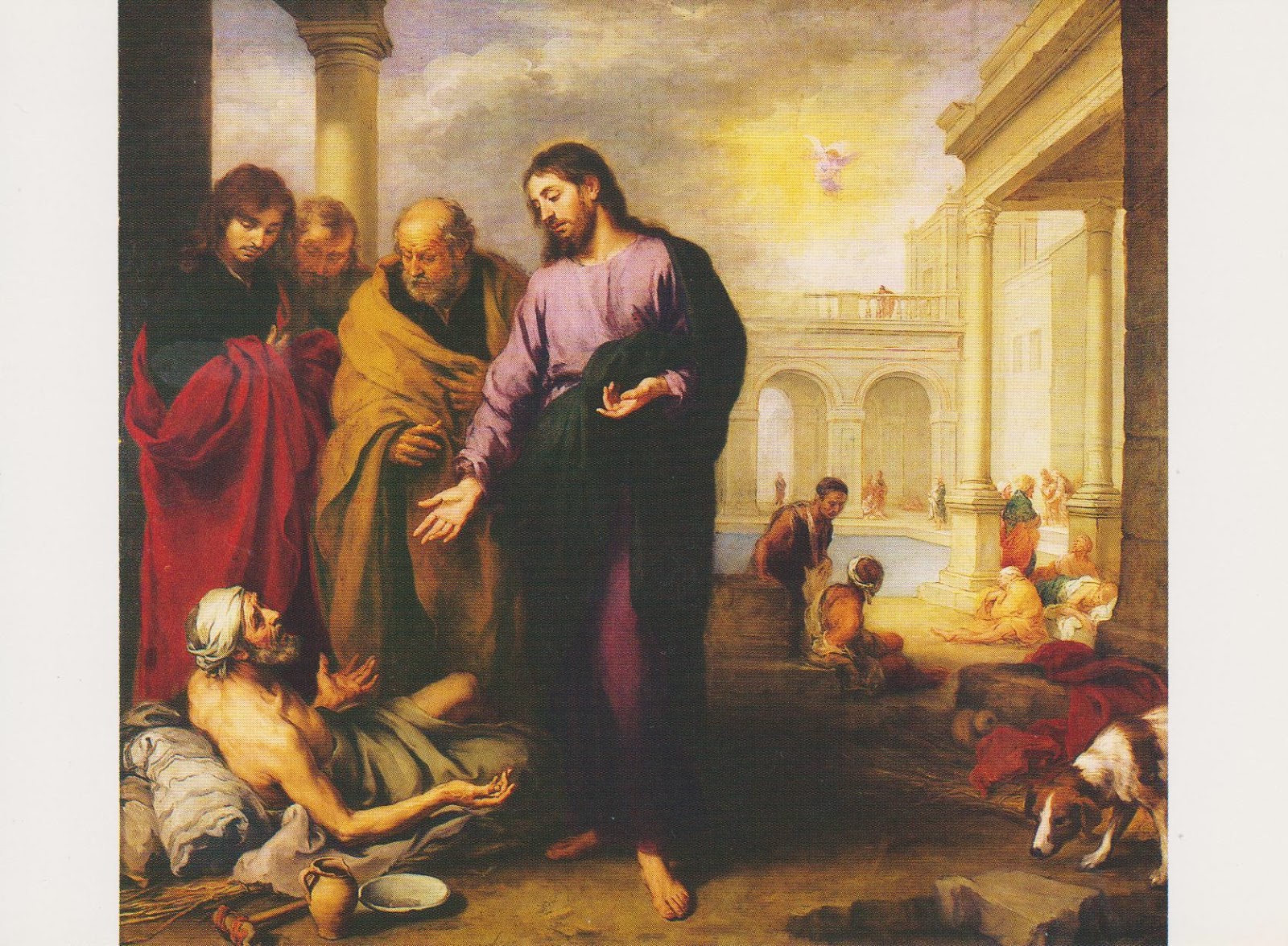4th Epiphany
John 5:1-16
Sometime later, there was a Jewish feast, and Jesus went up to Jerusalem. Now there is in Jerusalem, near the Sheep's Gate, a pool called Bethesda in Hebrew, which is surrounded by five covered porches. Here lay a great many invalids, the blind, the lame, the paralyzed, waiting for the water to begin moving. For from time to time, a powerful angel of the Lord descended into the pool and stirred up the waters. The first one in the pool after such a disturbance would be healed of whatever ailment he had.
And there was a certain man there who had been an invalid for 38 years. When Jesus saw him lying there and became aware that he had been ill for so long, he asked him, "Do you want [have the will] to become whole?"
The invalid answered him, "Lord [or, Sir], I have no one to help me into the pool when the water is stirred. While I am trying to get in, someone else goes down ahead of me."
Then Jesus said to him, "Rise
up, take up your pallet, and walk." At once,
the man was healed and picked up his pallet, and walked. Lynne Eastin
However, it
was the Sabbath on that day. Therefore the Jewish leaders said to the man who
was healed, "It is the Sabbath; the law forbids you to carry your pallet."
But he replied, "The man who healed me said to me, "Take up your pallet and walk!"
And they asked him, "Who is the man who said to you, 'take it up and walk'?" But the one who was healed had no idea who it was, for Jesus had slipped away, as there was a crowd in the place.
Later, Jesus found him in the Temple and said to him, "Take to heart what I say: Behold, you have become whole. Sin no more, lest your destiny bring you something worse."
The man went away and told the Jewish leaders that Jesus was the one who had healed him. That is why they persecuted Jesus and sought to kill him because he did these things on the Sabbath.
4th Epiphany
January
30, 2022
John 5:1-18
Often things happen without our knowing how. A movement, a change, or transformation seems to happen behind a curtain. We only see the result.
The will is such a mystery. In the broadest sense, it is connected to movement. Through our will, we stand up, walk, and work. But the workings of this mysterious power are mostly hidden from us.
Today's reading involves an invalid. Interesting word—in-valid. The man's will, his ability to stand up, to walk, to work, had been 'invalidated.' Christ asks him, "Is it your will to become whole, healthy?"
This question suggests that the man needed to become more conscious of his own will. What is it that he wants? How devoted is he to achieving his goal? His answer: "I have no one to help me. I can't do it alone." So Christ helps him. Christ infuses His own healing, integrative will into the man's weakened will, giving it strength.
In the Act of Consecration of Man, we express our awareness of our own
weaknesses of will and need for healing. We come to the altar, which is both a banquet table and a worktable. We bring our humble offerings, the selfless purity of our best and most hope-filled thoughts, our noblest feelings, along with whatever amount of motive force we can muster. And Christ adds His own healing will to them. This gives our offerings the upward thrust and power of levity that allows them to rise to the Father. Together the Father and His Son transform our will offerings. They are returned to us as healing medicine for our invalid souls, healing energy for a failing world.So in the words of John O'Donohue:
May
you find the wisdom to listen to your illness:
Ask
it why it came. Why it chose your friendship.
Where
it wants to take you. What it wants you to know.
What
quality of space it wants to create in you.
What
you need to learn to become more fully yourself
That
your presence may shine in the world.*
*John
O'Donohue, "A Blessing for a Friend on the Arrival of Illness," in To
Bless the Space Between Us, p. 60.
























